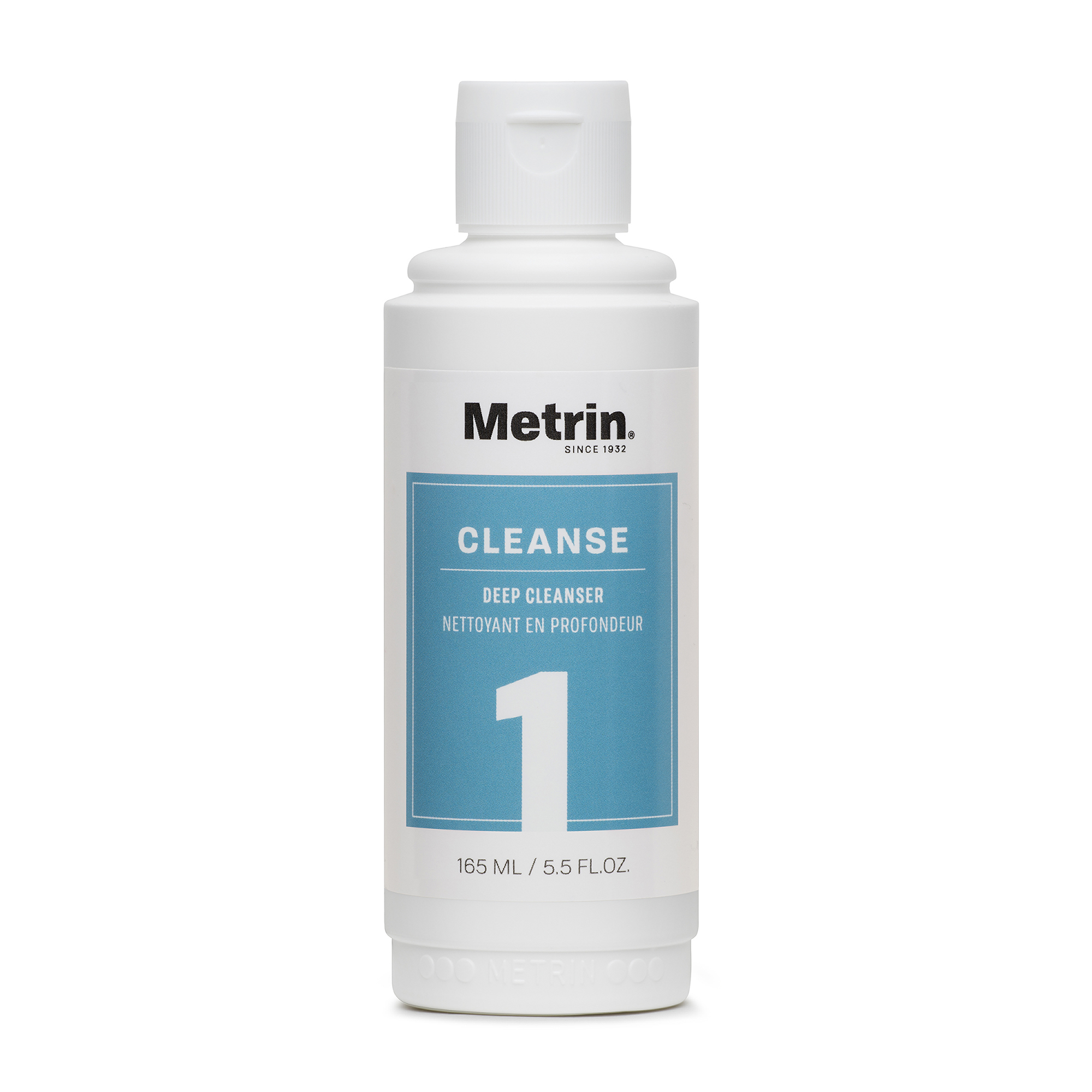Menopause Skin Care: How to Support Your Skin During Hormonal Changes
Why Menopause Changes Your Skin
“What the heck is happening with my skin?”
If you’ve asked yourself that question during menopause, you’re not alone. Many women notice sudden changes in their complexion: dryness, dull tone, unexpected breakouts, or deeper wrinkles.
These shifts aren’t signs your skin is failing you — they’re natural responses to hormonal change. With the right care, menopause doesn’t mean your skin’s glow ends. It’s simply a new chapter.
At Metrin, we believe menopause skin care means supporting skin in transition — not forcing it to act younger than it .
Why Menopause Alters Skin
Menopause brings systemic transformations — and your skin is one of the first places to show them. Key drivers include:
- Estrogen Decline: Estrogen stimulates collagen and elastin production. When levels drop, skin loses firmness, bounce, and volume — leading to fine lines and sagging.
- Slower Renewal: Cell turnover slows, so skin may look duller or feel rough.
- Reduced Oil Production: Fewer natural oils lead to dryness, tightness, flaking, and increased sensitivity.
- Hormonal Imbalance: The shift toward relatively higher androgen levels can trigger adult acne — especially along the jawline and chin.
- Weakened Barrier and Acid Mantle: The acid mantle, your skin’s natural pH-based defense, becomes more fragile. Barrier integrity declines, making skin more reactive, prone to dehydration, and intolerant to harsh ingredients.
These changes don’t happen overnight — but once they begin, skincare must evolve to meet them.
Common Skin Concerns in Menopause
If you’re in this phase, you may be confronting one or more of these issues:
- Dryness, tightness, flakiness
- Deepening wrinkles, sagging skin
- New-onset adult acne, especially around the jawline
- Redness, irritation, or rosacea-like tendencies
- Uneven tone, dullness
Menopause skin care should address all these concerns — not one in isolation. You want a balanced system that supports hydration, barrier repair, and gentle renewal.
How Metrin Supports Menopause Skin Care
Since 1932, Metrin has been trusted by women across life stages — including menopause. Our 5-Step Skincare System is intentionally designed to address the delicate balance needed at this stage:
| Step | Purpose for Menopause Skin Care |
|---|---|
| Step 1 & 2 (Cleansers) | Gentle, fragrance-free cleansing that removes impurities without stripping protective oils or disrupting pH. |
| Step 3 (Vita Conditioner) | Hydrating and soothing — replenishes moisture and nourishment. |
| Step 4 (Protective Lotion) | Seals in hydration and reinforces the barrier — particularly crucial when skin feels thin or reactive. |
| Step 5 (Enriched Vita Conditioner) | Richer, deeply nourishing layer with cold-pressed, high-oleic sunflower oil (an EFA source), which supports lipid restoration and comfort. |
These steps work together in menopaused skin care — building resilience, not compounding sensitivity.
“I’ve tried everything — nothing felt balanced until Metrin. After months, my skin stopped swinging between tight and oily. It just feels like my skin again.” — Erin R., a long-time user
Menopause Skin Care Best Practices
Here are housekeeping principles to support your skin through hormonal change:
- Avoid harsh actives
Retinoids, strong acids, and potent treatments may overwhelm menopausal skin. Start gentle. - Hydrate and protect first
Use water-based hydration and barrier-sealing layers before actives. - Support barrier repair
Ingredients like essential fatty acids, ceramides, and shea butter help rebuild a compromised barrier. - Use antioxidants
Vitamins C and E help neutralize oxidative stress, which accelerates aging — especially when hormonal factors reduce natural protection. - Patch test new ingredients
Sensitivity is higher, so introduce one product at a time. - Nutrition matters
Collagen-supporting foods, good hydration, and sufficient protein can complement topical care.
FAQ: Menopause Skin Care
Q: Should I switch my entire skincare routine at menopause?
A: You likely don’t need a total overhaul — just a smarter, gentler routine. Focus on barrier support, hydration, and avoiding harsh ingredients.
Q: Why do I get breakouts now when I never did before?
A: Hormonal shifts mean relatively higher androgens, which stimulate oil and clogged pores. Menopause skin care should include gentle cleansing and non-comedogenic moisturizers.
Q: How long till I see improvements?
A: Many notice better softness, hydration, and balance within weeks. More structural improvements typically unfold over 2–3 months.
Q: Do I need “menopause-specific” products?
A: Not necessarily. What matters is that your products support dryness, barrier health, and sensitivity — whether they’re marketed as menopause or general skincare.
Ready to restore your glow?
- Take Our Skin Consultation Questionnaire
Discover your skin’s needs and get tailored guidance.💌 Take the FREE Skin Care Questionnaire and we’ll help you get started. - Start with the Metrin Skincare System for Her
Our complete 5-step system is designed for long-term results, not short-lived “glow-ups.”👉 Shop the Metrin Skincare System for Her
References
- Thornton, M. J. (2013). Estrogens and aging skin. Dermato-Endocrinology, 5(2), 264–270.
- Castelo-Branco, C., & Cancelo, M. J. (2010). Managing the effects of menopause on skin. Maturitas, 66(2), 174–178.
- Zouboulis, C. C. (2009). Acne and sebaceous gland function. Clinics in Dermatology, 27(5), 418–428.













